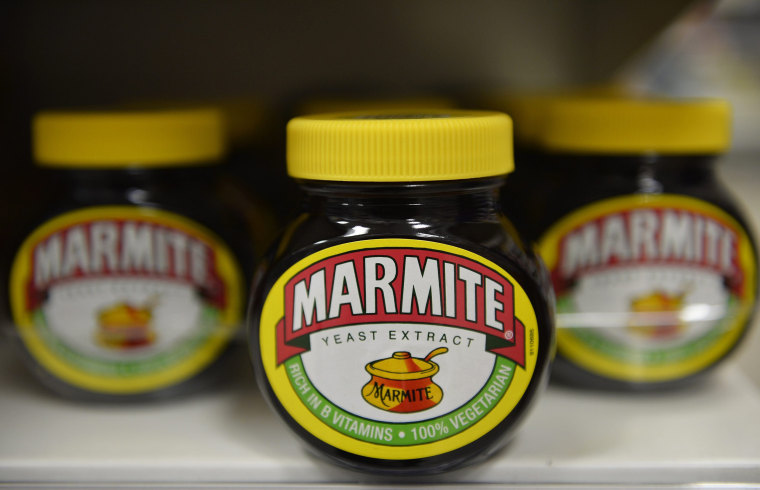Brexit has hit the Brits where it hurts — at the breakfast table.
There’s now a reported shortage of Marmite in England and it’s got Her Majesty’s subjects — the ones who love the sticky spread, that is — ruing they day they voted to leave the European Union.

"Nooooo. You are kidding me," Johnny Birch, a 47-year-old Londoner who voted for Brexit, told the Washington Post. “Our mornings won’t be the same again. I want to stock up. It’s a disgrace.”
"What, pray tell, is Marmite?" Americans may ask.
Well, it’s salty, yeasty, tar-like substance that the English — and those who share their peculiar tastes — are wont to paint on toast or dip into boiled eggs.
A recent YouGov survey found a third of the British public loves it, another third loathes it, and the rest are on the fence.
The reason Marmite is suddenly in short supply is because the English pound is not worth what it used to be, thanks to Brexit. In fact, it’s fallen to a 31-year-low.
That, in turn, has led to a battle between the British supermarket chain Tesco and the owner of the Marmite brand, the British-Dutch consumer goods giant Unilever. The latter wants Tesco to jack up the price to make up the difference. The former has said no way.
The Marmite crisis was debated on the floor of Parliament and made it to 10 Downing Street, where the British prime minister, Theresa May, resides. And May’s flack was quick to distance her boss from the sticky issue.
“It’s a decision for the companies how they market and sell their products,” she said. “It’s a commercial decision.”
In fact, May’s spokeswoman wouldn’t even confirm or deny that May is a Marmite devotee.
"It's not something I have had reason to ask, it's not something that has been served up by other European countries when we have been conducting these various bilateral relations,” she said. “So I don't have that insight."

